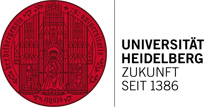Is It All a Question of Intelligence?

Dr Andis Sofianos of the Alfred Weber Institute for Economics has, together with fellow researchers, studied the manner in which certain traits affect cooperation across individuals. In the following interview, the researcher describes the study. The research results were published in the “Journal of Political Economy”.
What did you examine in your current study?
In this study, we were focusing on personality traits and intelligence and how these relate to general social interactions. We created groups of high and lower intelligence, agreeableness and conscientiousness and measured how those groups interact within themselves and whether the cooperative outcomes are different or not, depending on those specific characteristics.
Can you explain what those personality traits entail?
Agreeableness and conscientiousness are both part of the so called Big Five Model of Personality often used by psychologists and economists. Agreeableness is basically how considerate and trusting you are towards others. Conscientiousness is more about being disciplined and rule or norm abiding.
And how do you define intelligence in your study?
In our study we wanted to measure the cognitive abilities of the participants. For this purpose, we used the so-called Raven Test. This is a widely used nonverbal intelligence test where you observe a pattern and need to figure out which picture from an option of eight completes it. We ranked the number of correct answers the participants gave and those above median went in the high intelligence group, those below median in the lower intelligence group..
What is the most striking result of the study?
All of our participants were university students so the actual differences in intelligence were relatively small. The striking thing is that even with these small differences across the groups we had huge effects in terms of the earned payoffs the participants received. Those in the high intelligence groups made almost double the money than those in the lower intelligence groups. This shows that just small differences can end up exemplifying huge inequalities. In an additional treatment where we did not split according to intelligence, we observed that high intelligence individuals actually taught lower intelligence individuals to cooperate, rather than taking advantage of them. That is potentially important because it shows that even few smart individuals can generate positive effects for society as a whole. But let me point out one thing: We are not claiming that smart individuals are more cooperative in general. What we are saying is that smart individuals, in the context of what we have them do, identify the long-term benefits of cooperation and thus, cooperate. It is not an inherent characteristic that they have.
To what extent can these results be applied to current societal challenges?
Economists are trying to understand whether we can help nourish cognitive ability from a young age and further if it would translate into higher earnings or better career perspectives later on in life. What our results imply is that this sort of policies probably will not just help the individuals but the society as a whole. If you end up having people who are more forward-looking or better understand the implications of cooperation in terms of long-term benefits, then we potentially end up with a more cohesive and collaborative society, that can, at the same time, lead to more fruitful levels of production in the future.
The Research
In the recent study, a research team, which Dr Andis Sofianos was part of, investigated how the traits of intelligence, conscientiousness and agreeableness affect cooperation between individuals. Tests from the field of game theory showed that intelligence has the largest and most positive long-term effect on cooperative behaviour, while conscientiousness and agreeableness only have significant effects in the short term. From these findings, the scientists conclude that investments and development programmes in the education sector benefit not just individuals, but society as a whole, because social cohesion is greatest when people can gauge the long-term consequences of their actions for themselves and others. The study also involved Prof. Dr Eugenio Proto from the University of Bristol (Great Britain) and Prof. Dr Aldo Rustichini from the University of Minnesota (USA).
The Investigator
Andis Sofianos studied economics and psychology at the University of Warwick in Coventry (UK), where he earned his PhD in 2016. He has also been a visiting scholar at the University of Minnesota in Minneapolis (USA). In 2017 he accepted a position as post-doctoral researcher at Heidelberg University’s Alfred Weber Institute for Economics. His main interest is experimental economics.

